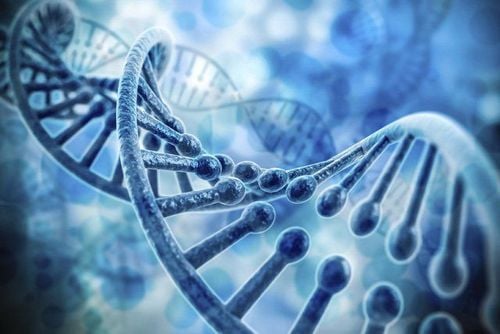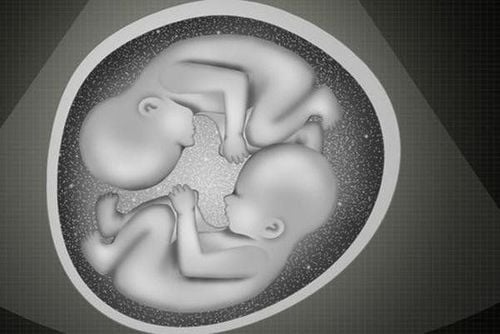This is an automatically translated article.
Carnitine is a natural nutrient that plays an essential role in the body's energy metabolism, helping to transport fatty acids. Deficiency of carnitine can cause metabolic disorders, lack of energy in the body leading to muscle diseases, hypoglycemia or cardiomyopathy,...
1. What is Carnitine Deficiency?
Carnitine deficiency is a metabolic state in which plasma and tissue concentrations of carnitine are lower than those required for normal physiological function of the body. Carnitine is a naturally occurring nutrient that plays an important role in fatty acid transport and energy metabolism. Carnitine is especially important for certain cells like muscle cells. With a carnitine deficiency, cells that rely on fatty acids for energy can begin to function poorly. Thereby causing a number of problems such as metabolic disorders, lack of energy, diseases of the muscles, liver, and heart, etc. Carnitine deficiency can occur in both men and women, and in all ages. year old.
There are 2 types of carnitine deficiency:
Primary carnitine deficiency: This is a rare condition caused by an abnormal gene. The gene causes a deficiency of an intracellular carnitine transporter from the blood. This condition is where the body cannot use certain fats for energy, especially when the person is fasting. Some cases only lead to low levels of carnitine in the muscles, but some can affect the liver and heart and is known as systemic carnitine deficiency. Secondary carnitine deficiency: is a common condition. In this case there is no problem getting carnitine into the cells. Instead, the problem is that there isn't enough carnitine in the blood, which affects health.

Thiếu hụt carnitine sẽ gây ra nhiều bệnh lý về gan và thận
2. What Causes Carnitine Deficiency?
Causes of carnitine deficiency include:
Carnitine deficiency in the diet, leading to insufficient intake of the body. Lack of metabolic enzymes such as methylmalonic aciduria, propionic acidemia, carnitine palmitoyltransferase, isovaleric acidemia,... Leads to inability to metabolize carnitine. Decreased endogenous synthesis of carnitine due to liver dysfunction. Excessive loss of carnitine from diarrhea, diuresis, or hemodialysis. Inherited disorder in which carnitine escapes through the renal tubules. Increased carnitine requirements in some serious diseases such as severe burns, infections, after major gastrointestinal surgery, when ketones are present or the demand for fat oxidation is high. Decreased levels of carnitine in muscle due to mitochondrial impairment. Use valproate. In addition, people at risk of carnitine deficiency are suffering from certain liver and kidney diseases, malnutrition, and digestive disorders that cause malabsorption, metabolic disorders, etc. Besides, the disease can be caused by inherited from parent to child, when a child receives an abnormal copy of a gene from both parents.
3. Symptoms of Carnitine Deficiency
Carnitine deficiency causes serious symptoms that affect the patient's health. Children with primary carnitine deficiency tend to present with symptoms during the first years of life. Some cases may begin in adulthood. Symptoms can vary from person to person due to different levels of carnitine deficiency.
Some common symptoms caused by carnitine deficiency include:
Muscle weakness, decreased muscle mass or weakness. Tired. Or grumpy. Poor mobility. If the liver is affected, hypoglycemia may occur. If the heart is affected, swelling, edema, and difficulty breathing may occur.

Thiếu hụt carnitine ảnh hưởng đến chức năng gan và gây hạ đường huyết
4. Diagnosis and treatment of carnitine deficiency
4.1 Diagnosis of carnitine deficiency
The diagnostic process of carnitine deficiency will begin with a physical examination, based on symptoms, patient and family history. Along with that are the laboratory tests including:
Blood tests: check the level and amount of carnitine in the blood. In addition, blood tests for creatine kinase or enzymes may show muscle or liver damage. Urine test: looks for a protein called a ketone. Genetic testing: this type of test can confirm primary carnitine deficiency. Cardiac exam: Tests such as echocardiography can show if the heart's condition is affected.
4.2 Treatment of carnitine deficiency
The main treatment for carnitine deficiency is L-carnitine supplementation. This is the usable form of carnitine and comes in pill form. L-carnitine increases the amount of carnitine in the blood and inside cells, which can help prevent symptoms of the disease it causes.
For patients with primary carnitine deficiency will have to take the drug for life. If you have a secondary carnitine deficiency, you will only need to use the drug for a limited time and have multiple blood tests to check for carnitine levels. In addition, if the patient has some heart disease, the liver will have to be treated together.

Bổ sung L-carnitine sẽ giúp cơ thể bù lại lượng carnitine thiếu hụt
5. Possible complications of carnitine deficiency
If left untreated, carnitine deficiency can cause serious health problems, especially heart and liver diseases. Possible complications of carnitine deficiency are:
Heart failure : This is one of the serious complications. A weak heart may not be able to pump blood, leading to symptoms such as swelling and difficulty breathing. Heart failure if not treated early can lead to death. Liver diseases: often occur in children in the first years of life. The liver can become enlarged, liver function will be impaired, this can cause problems such as poor feeding, or fussiness in the baby. Liver problems can lead to episodes of hypoglycemia, and infection is often the main cause. Severe hypoglycemia can lead to coma and even death if left untreated. Therefore, to prevent carnitine deficiency before childbirth, genetic testing should be done to find out the risk of transmission. If parents have an abnormal gene, they can choose to use in vitro fertilization or embryos to be tested for the disease. During early pregnancy, amniocentesis should be performed to check the status of the disease. In addition, for those who already have the disease, it is necessary to have a reasonable diet to prevent complications. Accordingly, it is necessary to eat more foods that contain carnitine such as red meat, chicken, fish and milk.

Suy tim là một trong những biến chứng nguy hiểm của tình trạng thiếu hụt carnitine
To summarize, carnitine deficiency is a metabolic state in which plasma and tissue concentrations of carnitine are lower than those required for normal physiological function of the body. If not diagnosed and treated early, carnitine deficiency can cause serious liver and heart problems. Therefore, when there are abnormal symptoms, immediately go to a medical facility to be diagnosed, measure carnitine in the blood and have appropriate intervention methods.
Most Vietnamese women today are only concerned with their health and the baby after pregnancy, while preparing for pregnancy is much more important. The counseling and health check for pregnancy preparation for couples who are planning to become pregnant, for parents who have been pregnant or have had children with birth defects or problems related to pregnancy. Chronic diseases, genetic diseases, obstetrics and gynecology, ... are very important and necessary to minimize the risk of diseases affecting the mother and child later. Therefore, before becoming pregnant, couples should go to hospitals with specializing in Obstetrics and Gynecology, genetic testing to be examined and consulted, especially those who have a medical history and are at high risk. .
With the desire that couples have the opportunity to have healthy children, besides genetic screening before pregnancy and genetic screening during pregnancy, the Hospital's Pre-pregnancy Care and Counseling Program Vinmec International General Hospital also screens for many other factors, such as preimplantation test (PGT), screening for diseases such as vaginal infections, sexually transmitted diseases (STDs), diabetes, pathology. cardiovascular,... to prepare well for pregnancy, increase the likelihood of having a healthy baby and minimize risks during pregnancy, childbirth and postpartum. Therefore, Vinmec is a prestigious address for couples to choose to carry out screening measures before, during and after birth, to ensure that the baby is born healthy with the most convenient services.
Please dial HOTLINE for more information or register for an appointment HERE. Download MyVinmec app to make appointments faster and to manage your bookings easily.
References: cedars-sinai.org, emedicine.medscape.com













